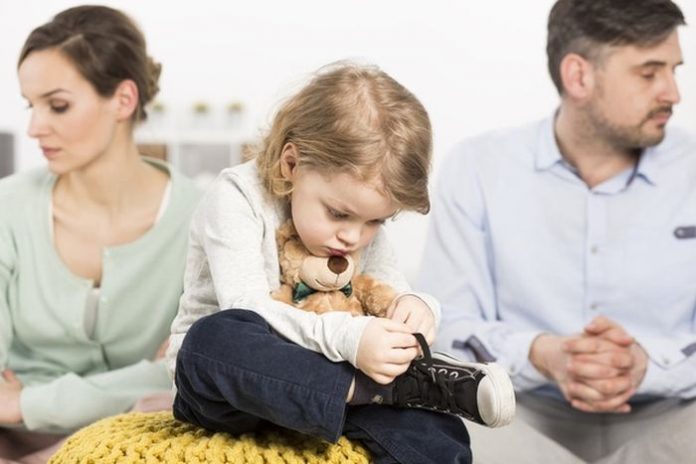Going through a divorce is, at least for some people, a challenging and painful process. It becomes significantly more complicated when children are involved. Most parents want custody of their kids, and some couples manage a fairly amicable divorce and arrive at a custody agreement that serves everyone’s interests, especially that of the children.
But couples who find themselves at odds may actively seek to prevent their ex from even visiting the kids … and that’s when the situation can get ugly.
If you’re currently enmeshed in a custody disagreement and you’re concerned about losing access to your children, you ought to understand the major reasons why parents are denied or lose custody of their children. Certain behaviors can make it more likely you’ll lose out in the custody agreement.
Most arrangements aren’t set in stone, though, which means you also will have future opportunities to make amends.
Big Bad Deal Breakers

Some of the reasons that parents are denied custody of their children during a divorce can be subjective, but others are unmistakable red flags that can make it easy for your ex to secure sole custody. Major obstacles include abuse and neglect, a history of substance abuse, and child abandonment.
If your ex can establish any of these claims in your case, or even just raise strong concerns, there’s a chance you could be denied custody and even visitation. In the case of substance abuse, you might only be awarded limited and supervised visitation.
Another major issue your ex might be able to use against you in a custody proceeding is mental illness. Though conditions such as anxiety and depression are common and not inherent barriers to being a good parent, individuals who have a severe or unmanaged mental health condition could be denied custody, at least until they can show an extended period of treatment compliance.
Putting The Kids in the Middle
Children often feel as if they’re trapped between their parents during a divorce, even when the adults are trying their best not to employ their kids as go-betweens or bargaining chips. It’s in the nature of the process.
That being said, a parent who actively puts his or her child in the middle of arguments with a spouse, or tries to turn the kids against the other parent, is less likely to be awarded custody. If you want to improve your chances of receiving at least partial custody when the divorce is finalize, you have to prioritize the creation of a healthy co-parenting relationship.
In essence, you need to demonstrate to the court that you can and will put the needs of your child(ren) first and you won’t jeopardize their well-being or their relationship with their other adult just so you can get the upper hand in negotiations.
Lack of Counsel

Obviously, you’ll need a lawyer to help you navigate the divorce process. Sometimes parents lose custody because they didn’t consult a lawyer early on and committed vital mistakes that jeopardized their case.
Even just deciding to live somewhere else before discussing the case with a lawyer can compromise your legal position. An experienced attorney has the experience and knowledge to advise you how to avoid errors that could make it harder for you to secure access to your child.
Relocation Risk
People move regularly, from one city or state to another, and sometimes to foreign countries. When you’re going through a divorce, relocating can significantly compromise the likelihood that you’ll be granted even partial custody.
Given how common it is, why does relocating represent such a challenge for parents during the divorce process? According to child custody lawyer Rowdy Williams, “relocating can compromise your chances at gaining custody of your child because, if the other parent doesn’t plan on moving, the courts will tend to lean toward granting custody in an arrangement that’s least likely to disrupt your child’s life.” Remember, this is about what’s in your child’s best interests, and that typically means keep your son or daughter in their current school and among an established circle of friends. As much as you might wish to pursue new opportunities in a different location, moving is likely to compromise your legal (not just geographical) access to your kids.
Environmental Safety
Just as parents can lose custody of their children to the state because of neglect and unsafe living conditions, you may also be denied custody during a divorce if your living environment is unsuitable for a child. This can mean anything from pest infestations and the presence of lead in the paint to residing in a structure that needs major repairs. While parents oughtn’t to be punished merely for being poor, courts are responsible for ensuring that children have a safe place to live and grow.
Regaining Custody

If you believe you might be at risk of losing custody of your child during the divorce, or you’ve already lost custody, don’t give up hope. It is entirely possible to address at least some of the issues that may have led to an undesirable outcome.
For example, if you have a history of substance abuse issues, you could be able to regain custody rights or increased visitation by completing a drug treatment program and submitting to regular drug tests. Similarly, if you struggle with mental health issues that have made it difficult for you to coordinate with custody proceedings and provide your children with proper care, submitting to therapy and a regimen of proper medication can make it more likely that you’ll be granted partial custody.
Whatever issues you’re facing in the course of your divorce, the best way to ensure you’ll be given a fair hearing is to cooperate with your ex, put your child’s needs first, and remain calm throughout the process. It’s also a smart move to keep comments about your divorce and your ex out of social media.
Every family and set of divorce proceedings is different, and how likely you are to receive preference in the custody agreement will depend on your individual situation. The best thing you can do, though, is to stay positive and demonstrate your commitment to your child’s well-being.
Even if you aren’t awarded custody, you can maintain a relationship with your child through other avenues, including phone calls and short outings. You may be at the end of your marriage, but that doesn’t also mean the end of your relationship with your daughter or son. If you keep that in mind, you’ll be in a better position to be there, provide support, and enjoy an ongoing connection with your maturing child.









